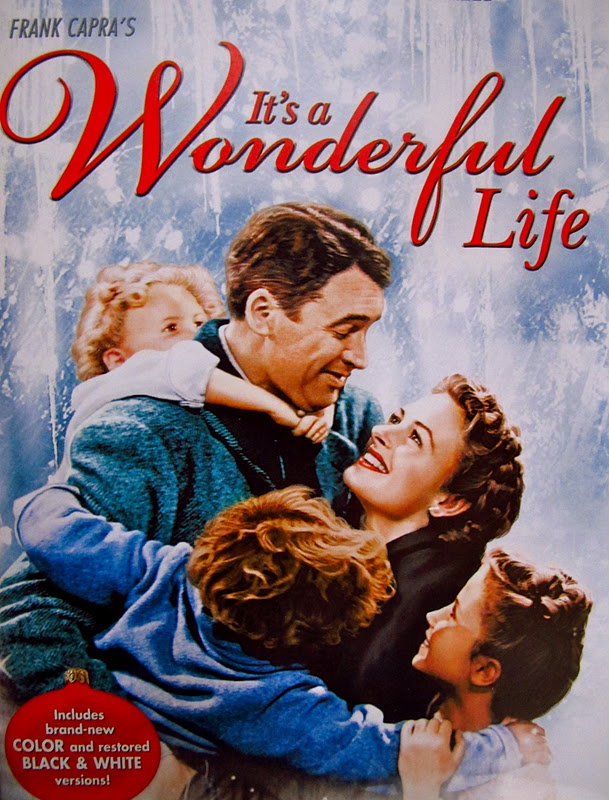The film, that has spent seven decades ushering in the holiday season, began as a Christmas card before the rights were purchased by RKO Radio Pictures. Courtesy of RKO Radio Pictures
By Salvador Castillo
It’s that time of year when we grab our family and friends to huddle around the TV and watch the standard arrangement of festive movies. From “National Lampoon’s Christmas Vacation” to “It’s A Wonderful Life,” holiday movies are a staple of the season.
However, there are holiday movies that often go forgotten because they’re unconventional. From horror flicks to movies that show the opposite meaning of the holiday, these are great choices when you want to spice up your holiday movie queue.
First off, Thanksgiving. It’s hard to find movies about Thanksgiving aside from “A Charlie Brown Thanksgiving,” so unconventional movies are even more rare. The film “The Ice Storm” follows two dysfunctional families who engage in all kinds of excess.
And while most movies in this vein often play it for comedic purposes, this film explores how excess can either break a family or unite it. It also doesn’t hurt that it has performances from Elijah Wood, Tobey Maguire, Katie Holmes and Christina Ricci.
Next, Christmas. While “Die Hard” may come to mind first, there’s another movie that many don’t think about: “Silent Night, Deadly Night.”
It may seem counterintuitive to watch a horror movie for Christmas, but the film’s focus on a serial killer, who dresses up as Santa Claus punishing those he deems naughty, more than qualifies. While the movie has staunch ‘80s roots, the film still makes for quality entertainment today. Just pay no mind to the sequel.
Following Christmas is New Year’s Eve, and “Poseidon,” a remake of 1972’s “The Poseidon Adventure,” is the movie of choice.
It follows a group of tourists, aboard the SS Poseidon during a New Year’s Eve celebration, who have to make it out of the ship after it capsizes. It may not have the more common settings of quiet suburbs or sprawling cities, but it’s still an uplifting story about strangers caring for each other through hard times.
After New Year’s Eve comes Valentine’s Day. And yeah, most people stick to their run-of-the-mill rom-com, but that’s doing movies like “My Bloody Valentine” and “Harold and Maude” a huge disservice.
“My Bloody Valentine” follows a group of miners in the town of Valentine Bluffs, Canada, after their celebrations are interrupted by local urban legend Harry Warden, who kills anybody who tries to get “freaky” in the mines where he was trapped during a previous Valentine’s Day celebration.
And while “Harold and Maude” follows the more traditional beats of a Valentine’s Day film, the key difference lies with the eponymous couple: Harold is an 18-year-old obsessed with staging fake suicides, and Maude is a 79-year-old (you read that right, there’s a 61 year age gap) who leads an incredibly eccentric lifestyle. Darkly funny and slightly bizarre, it’s a very sweet movie exploring relationships.
Next comes Easter. This holiday derives from Jesus and his message, mainly “love thy neighbour.”
“Cool Hand Luke” follows the story of Jesus in an interesting way. It tells the story of a prisoner on a chain gang who refuses to conform to the rules set by the sadistic warden. If you aren’t getting the Jesus allegories yet, you have to watch the film and figure them out for yourself.
And finally, the Fourth of July, the most American of all holidays, where we celebrate the country’s independence and history. What better way to encapsulate this feeling of patriotism than a movie about oilmen?
Paul Thomas Anderson’s masterpiece “There Will Be Blood” follows an oilman’s life and career, exploring the relentlessness of our capitalist spirit and greed and weaving a tale of the business most famous in American history.
Holiday films don’t have to strictly fall into the conventional mold for them to be appropriate viewing. If the film’s themes resonate in some way, shape or form with the central values of a certain holiday, it counts.
Even if the movie simply takes place on the holiday, it can still count as holiday-worthy viewing. If “Die Hard” counts as a Christmas movie –– which it does –– then what’s stopping the movies previously mentioned from being appropriate for their respective holidays?



